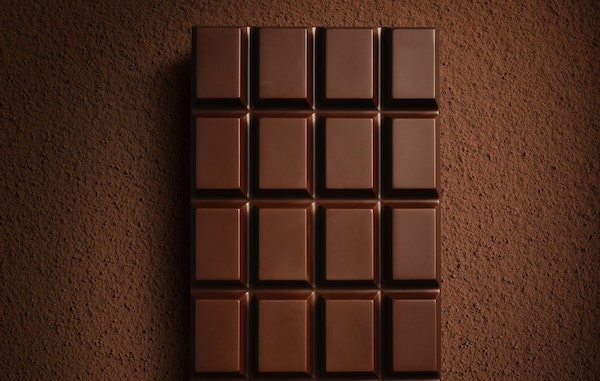Don't miss the latest stories
Cocoa-Free ‘Chocolate’ That’s Fooled Even Experts Could Soon Be Sold Near You
By Mikelle Leow, 17 Aug 2021
Subscribe to newsletter
Like us on Facebook

Image via QOA
In more ways than one, chocolate isn’t guilt-free. Most evidently, in order to feed a global demand, cocoa plantations populate where many rainforests used to be, while its carbon footprint comes pretty close to meat and dairy, Fast Company reports. Perhaps even more appalling, albeit lesser-known, is its dependence on child slavery.
Children in Mali, for instance, often get tricked into certain jobs with the false assurance of a promising salary, only to be trafficked into Ivory Coast, where a third of the world’s cocoa comes from. There, they could be made to work at cocoa plantations without getting paid.
Vexed by these detrimental effects brought by cocoa production, along with the increasing difficulty of growing cocoa due to climate change, German startup QOA is producing “chocolate”… but without the cocoa. Backed by tech accelerator Y Combinator, it has also sealed deals with major confectioners to help bring sustainable, cruelty-free alternatives to the general public.
To create cocoa-free chocolate using other plants, QOA uses a technique known as “precision fermentation” on ingredients to perfectly replicate the unique taste and melty, velvety texture of real chocolate. Food scientist and QOA confounder Sara Marquart likens the profile of cocoa to a human fingerprint: “We analyze the fingerprint of raw cocoa, fermented cocoa, roasted cocoa, to understand what is making cocoa this unique little bean that has so much flavor,” she tells Fast Company.
This dissection of flavors is applied to other steps of the chocolate-making process, including the pressing of sunflower seeds to make oil, to piece together “building blocks of the flavor.” Ingredients then go into a brewing tank for fermentation, creating a cocoa-like commodity that can be dried and roasted like the original.
As you can imagine, arriving at an alternative that tastes like chocolate wasn’t easy. An early experiment ended with an average rating of 4.9 out of 10 from taste testers, and Marquart even admits one person said “she had to brush her teeth three times.” Nevertheless, her team has finally developed a version that even chocolate sensory experts at research firm Fraunhofer couldn’t tell apart from regular chocolate.
The end product has proven to be so impressive that QOA is in discussions with larger chocolate brands. Marquart recounts how an executive had been “super skeptical” at first but rushed to get into a partnership after giving the chocolate a taste. Pilot tests with major confectioners are scheduled in 2022.
Ultimately, QOA hopes to replace cocoa used in mass-market candy, but not sustainable single-origin chocolate. “We love the product that is produced in a sustainable and just way by small-stake farmers,” explains Marquart. “The only problem is that it’s not a scalable approach… We’re just wanting to offer a solution for mass-market chocolate that we can skip the CO2 footprint and the child slavery.”
“Our chocolate is 10 times more sustainable and 20% cheaper than conventional chocolate,” QOA describes. It endeavors to “substitute a big chunk” of cocoa in everyday chocolate consumption by 2035.
[via Fast Company, cover image via QOA]
Receive interesting stories like this one in your inbox
Also check out these recent news





